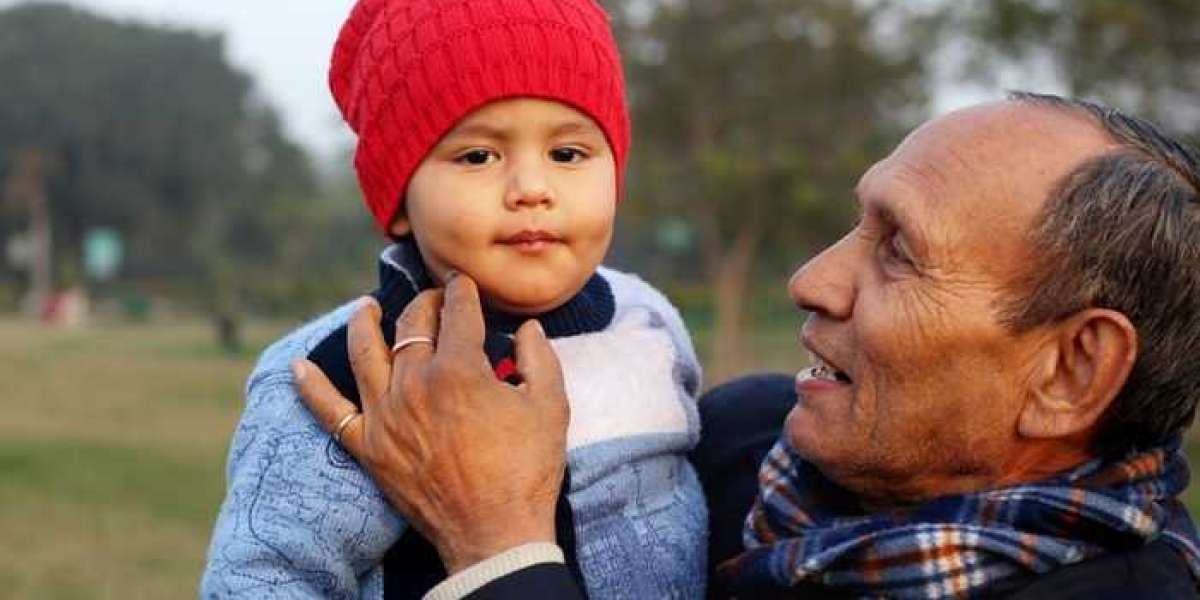Respecting our elders should be engrained in each and every one of us as politeness. Elders should be treated with dignity and respect, according to common elegance and manners. Unfortunately, in today's culture, these significant honors and privileges have been completely overlooked.
Since the dawn of the Information Age, technology has been at the forefront of human communication, making today's interactions a little less intimate than in previous generations. Manners have been lost in the midst of hectic schedules combining family life and job, not to mention the fact that the majority of people communicate with one another over the internet as the primary medium of communication. Many of us are either too busy or just reject our elders and their contributions to society and family, rather than showing them the esteem and respect that they so well deserve.
Ways to Pay Respect to Our Elders
Senior folks have accumulated a lifetime of knowledge and experience. Their generation has seen the Great Depression, World War II, the Vietnam war, and the Great Recession all before they were even born. These wise Americans have a lot to teach us about weathering change and dealing with the difficulties of life.
Although our seniors' hearing and memory may not be what they used to be, they still have a great deal of wisdom to share with us. Reading about Pearl Harbor is one thing; hearing about it from someone who was there firsthand is far more absorbing and informative. Youth must learn the value of honoring their elders and setting aside time to listen and spend quality time with them as they grow in age.
As reported by the Bureau of Labor Statistics, the senior population, defined as those aged 65 and over, has more than doubled since 2013. It is projected that 9.2 million individuals who served in the military services are veterans, according to the U.S. Census Bureau. Seniors made for 13.3 percent of the overall population in 2011, according to the Census Bureau. Older Americans have had a significant effect on our culture, both historically and currently. We must remember and celebrate our elder Americans, from the wisdom and experience of the "Greatest Generation" through the vigor and involvement of the Baby Boomers who are retiring.
Read on for more suggestions on how to show our respect and appreciation for our elders:
1. Make an effort to spend time with them (and listen intently).
Many seniors experience loneliness, whether they are retired and no longer have a work social routine, or they have lost their spouse and some of their closest friends and family members. Regardless, individuals still require a diverse social network in order to be happy, since many might become socially isolated over time, which can result in health problems. Making time to visit older loved ones is vital not just to spend quality time with them and benefit from their experiences, but also to offer them a sense of purpose since connections are essential to good aging. When you're in the company of an older, pay attention since the senior's remarks come from a position of many decades of knowledge and understanding. It is possible that the chat will be useful to both of you.
2. Be courteous.
Being nice to an elder is a display of respect. Older generations of Americans grew up in an era when good manners and respect were expected in everyday life. If they are speaking, pay attention to what they are saying. If they haven't given you permission, don't interrupt them or address them by their first name. Being courteous may not only brighten their day, but it may also brighten yours, as you may learn something (or simply feel good about brightening someone's day!) as a result of your actions.
3. Seek counsel from others.
Unfortunately, ageism still prevails, despite the fact that the elderly are among the most intelligent persons in society. That a senior, with a lifetime of experience, would be passed over for guidance is a tragedy. As a result of their life experiences, seniors have a great deal to offer society, and seeking advice from an elder is time well spent. You and your partner will be touched by the sentiment.
4. Share a meal with someone.
Eating together is one of the biggest social practices for humans. While fueling your body, you may also catch up with friends and have a good time. It doesn't matter if you go to a favorite restaurant, pack a picnic, or visit your senior loved ones in their own homes, make an effort to have meals together on a regular basis.
5. Talk about your family's ancestors, history, and traditions.
Family stories have an inherent power that can't be denied. It is true that compiling an oral family history may not only bring family members together and deepen the bonds that exist between generations, but it can also teach people about their genetics, personalities, and other aspects of their heritage. It is shown that family history leads to deeper family relationships and greater life achievement.
Children who are more aware of their family history, according to new research, also tend to be more emotionally resilient, capable of dealing with stress and obstacles more successfully because they have a deeper sense of where they came from and what defines them.
According to the results of a poll done by Harris Poll on behalf of A Place for Mom, the following themes were among the things that individuals in the United States wanted to know about their family members, notably their mothers:
Highlights of my professional life (e.g., significant work achievements, favorite job)
Ancestors and forefathers (e.g., genealogy, origins of the family)
Advice on how to live your life (e.g., view on aging, words of wisdom to share with children and grandchildren)
Medico-legal background (e.g. health issues common with family members, life-threatening disease diagnosis)
My own personal history (e.g., childhood memories, dating history)
Almost like a jigsaw, heritage is several parts that make a masterpiece to compose an individual and their path. Taking the time to see aged loved ones around the holidays may help you not only bond with them, but also collect parts of their family's history, which can be useful information to pass on to future generations. After all, if information about families is not recorded, it will be gone in three generations' time.
6. Make contact with them.
In the event that you live too far away from your senior loved one to see them on a regular basis, call them and express your concern. In our hectic lives, it's easy to lose sight of the tremendous amount of significance an older would derive from our taking the time to say 'hi' and converse with them. Phone calls are a more intimate means of expressing your feelings.
Inform them of the extent to which you value and respect their contributions.
While it is crucial to show your respect for your elders by your deeds, it is also necessary to express your feelings of appreciation and respect for them verbally. Compliments and providing people with a sense of purpose, particularly for older Americans, send a very good message. In the event that there is a senior who has had a positive influence on you, please be sure to share this with them; it will almost certainly bring a smile to their face.
8. Pay a visit to a senior living community.
The world moves at a breakneck pace, and individuals are prone to losing sight of what is actually essential. Older people are often overlooked, yet they are still very much alive and well. By paying visits to senior living communities, you demonstrate to the residents that you are concerned. Through social connection, you provide them with a sense of purpose and dialogue. Visiting a senior living complex, whether or not your loved one resides there, is a wonderful opportunity to reach out to the elderly and demonstrate your concern for them.
9. Make a difference by volunteering at a senior center.
When we donate, we feel better about ourselves. Pay it forward is an excellent slogan to live by. When we look back on our life, it is the eternally emotional moments that make it all worthwhile. Often, these moments are spent working for the elderly and giving to those in need. In a nursing home or senior living community, a little bit of everything goes a long way. Learn how the holidays provide a fantastic chance for volunteering in a senior living community, as there are many activities and opportunities to assist with festive gatherings and celebrations to participate in.


